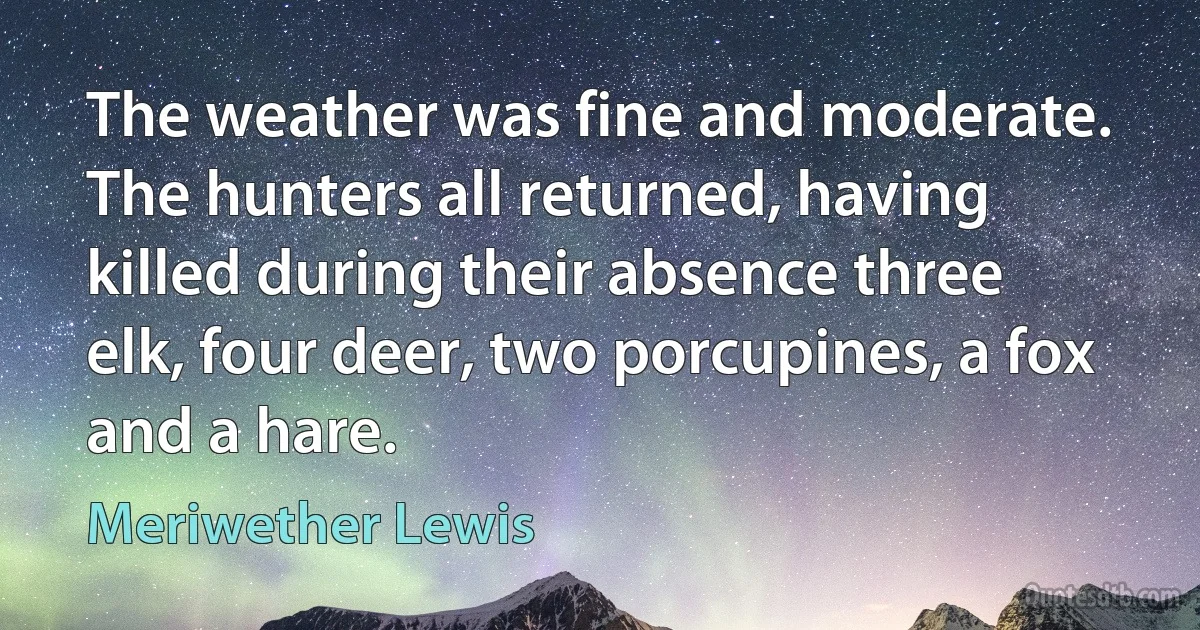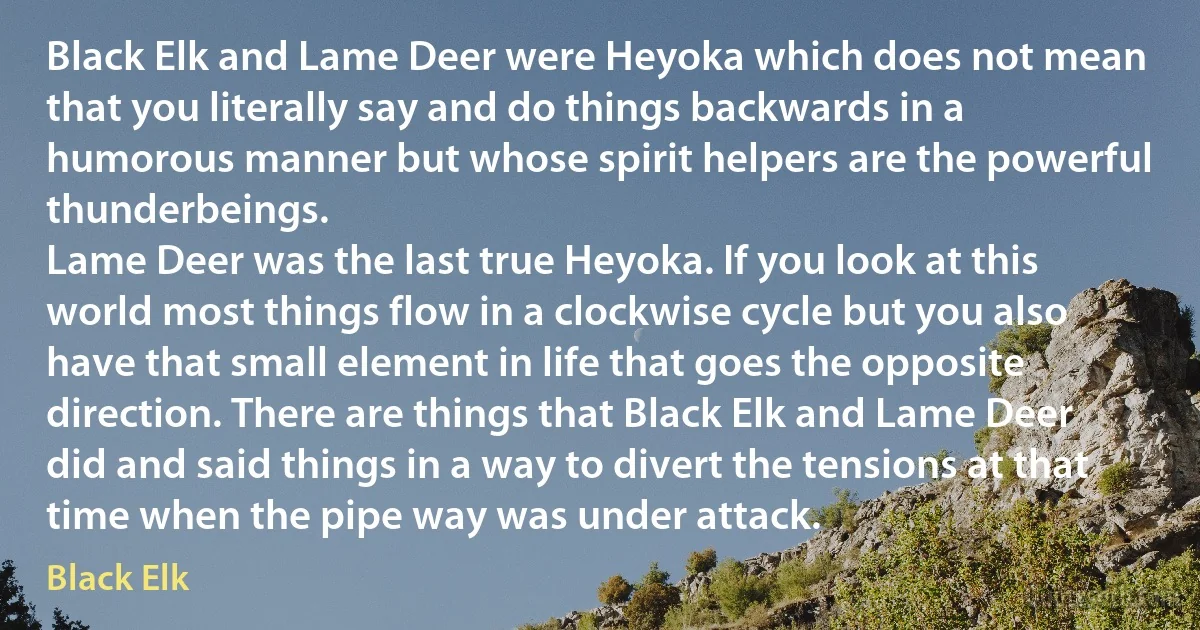Elk Quotes
There are also animals which are called elks [alces "moose" in Am. Engl.; elk "wapiti"]. The shape of these, and the varied colour of their skins, is much like roes, but in size they surpass them a little and are destitute of horns, and have legs without joints and ligatures; nor do they lie down for the purpose of rest, nor, if they have been thrown down by any accident, can they raise or lift themselves up. Trees serve as beds to them; they lean themselves against them, and thus reclining only slightly, they take their rest; when the huntsmen have discovered from the footsteps of these animals whither they are accustomed to betake themselves, they either undermine all the trees at the roots, or cut into them so far that the upper part of the trees may appear to be left standing. When they have leant upon them, according to their habit, they knock down by their weight the unsupported trees, and fall down themselves along with them.

Julius Caesar
Just as he was an Elk, a Booster, and a member of the Chamber of Commerce, just as the priests of the Presbyterian Church determined his every religious belief and the senators who controlled the Republican Party decided in little smoky rooms in Washington what he should think about disarmament, tariff, and Germany, so did the large national advertisers fix the surface of his life, fix what he believed to be his individuality. These standard advertised wares-toothpastes, socks, tires, cameras, instantaneous hot-water heaters-were his symbols and proofs of excellence; at first sight the signs, then the substitutes, for joy and passion and wisdom.

Sinclair Lewis
Inanimate objects are sometimes parties in litigation. A ship has a legal personality, a fiction found useful for maritime purposes. The corporation sole – a creature of ecclesiastical law – is an acceptable adversary and large fortunes ride on its cases.... So it should be as respects valleys, alpine meadows, rivers, lakes, estuaries, beaches, ridges, groves of trees, swampland, or even air that feels the destructive pressures of modern technology and modern life. The river, for example, is the living symbol of all the life it sustains or nourishes – fish, aquatic insects, water ouzels, otter, fisher, deer, elk, bear, and all other animals, including man, who are dependent on it or who enjoy it for its sight, its sound, or its life. The river as plaintiff speaks for the ecological unit of life that is part of it.

William O. Douglas
Elk have not been seen in Switzerland for many a year. In the interests of scientific accuracy, please strike the idea of elk from your mind. If you must, think of ibexes instead, a fierce and agile type of goat with great spiraling horns. Marmots will also do in a pinch, but under no circumstances should you think of elk. No. Elk. The elkless among you may now proceed.

Maryrose Wood


